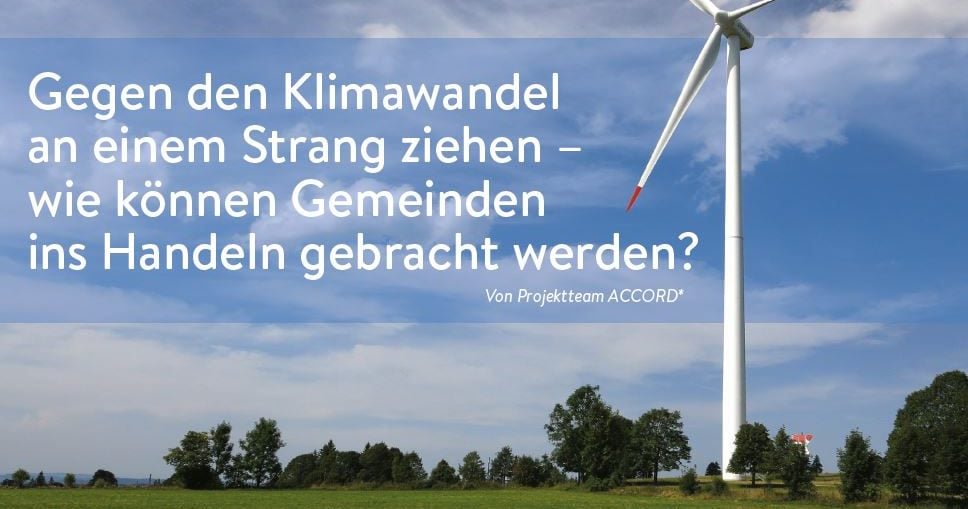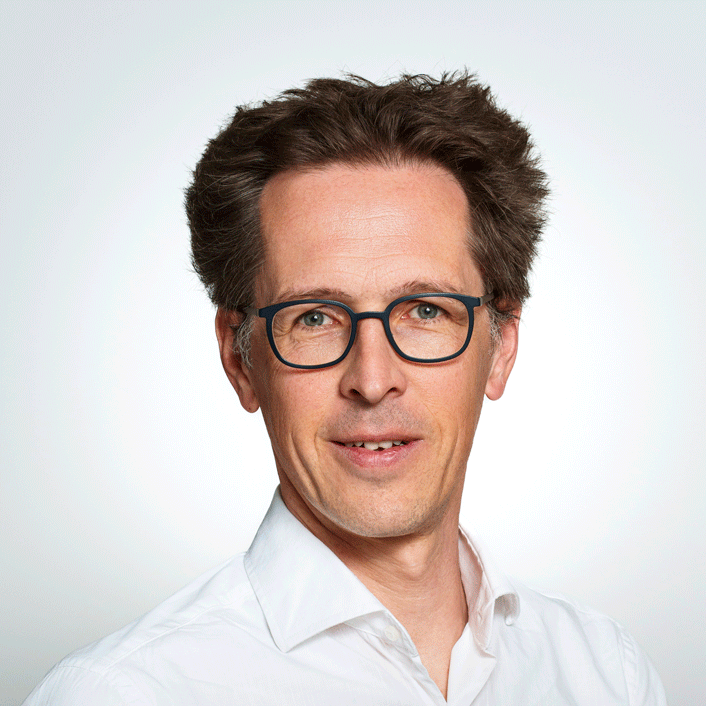Climate change poses major challenges for communities around the world. Local administrations in particular are called upon to take climate adaptation and mitigation measures. In the research project ACCORD (Aligning risks and coping appraisals to kick off local climate action), researchers from JOANNEUM RESEARCH LIFE, the University of Natural Resources and Life Sciences, Vienna and the Bruck/Leitha Energy Park are investigating why some municipalities are more active in climate protection than others and how a common understanding of climate risks and coping strategies can be developed.
Research approach and methods
The ACCORD project combines two strands of research: ‘Climate Governance Capacities’ and the ‘Protection Motivation Theory’ (PMT). Governance Capacities describe the necessary structures, resources and networks for effective political action. The PMT, originally from the health sciences, explains protective actions by assessing the threat and one's own coping options. Six municipalities in the Lower Austrian regions of Marchfeld and Römerland Carnuntum were selected to test these theories at local level. These municipalities are severely affected by climate change-related natural hazards such as heat, drought and flooding.
Participatory process
A central component of the project is the participatory involvement of local stakeholders. Workshops and risk analyses were carried out in two of the municipalities in order to develop a common understanding of climate risks. With the help of a ‘precautionary check for natural hazards’, a tool developed by the Federal Environment Agency, the municipalities mapped their current and future climate-related risks and identified risk-reducing measures. This is supplemented by qualitative interviews with key people from civil society, agriculture, emergency organisations and politics. Sebastian Seebauer, environmental psychologist and LIFE project manager, was in charge of conducting and analysing the interviews: ‘It has been shown that the perception of risks and the willingness to implement measures in the communities vary greatly. The threat posed by heat and drought is not yet perceived as being very severe. It was higher last year because it was a dry year. The rainy spring has pushed this threat into the background this year.’ The research team also noted how collective action depends on local social networks. ‘Key individuals, such as mayors or local environmental councillors, play a central role in raising climate issues. We call these people ‘policy entrepreneurs’. However, it was surprising to find that these innovative individuals only become effective when they encounter local social structures that propagate their ideas. Without these structures, their efforts fizzle out," explains Seebauer.
Importance of collective action
Collective action at the local level is crucial in the fight against climate change. "As part of the project, we had to realize that the issue of climate change adaptation is less pressing for most of the communities studied than short-term issues such as kindergarten, unwanted immigration, or the closure of local suppliers. However, a common understanding of the problems and potential solutions is essential for joint climate activities."
Better together
By involving the community and utilizing local expertise, measures can be designed to be more effective and sustainable. The success of climate protection and adaptation largely depends on the willingness and ability of communities to recognize risks and act together. Only through a shared understanding and coordinated action can communities successfully meet the challenges of climate change.
Partner
ACCORD ist ein Gemeinschaftsprojekt der JOANNEUM RESEARCH, der Universität für Bodenkultur Wien und des Energieparks Bruck an der Leitha, gefördert vom Klima- und Energiefonds.


